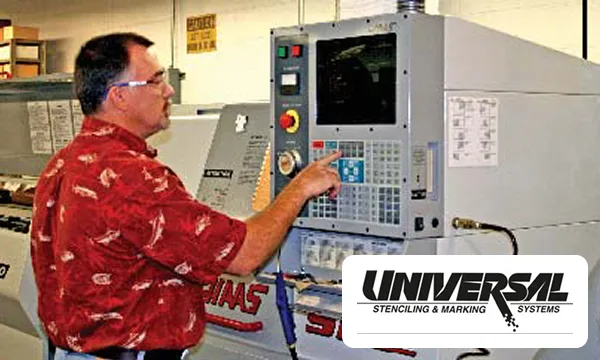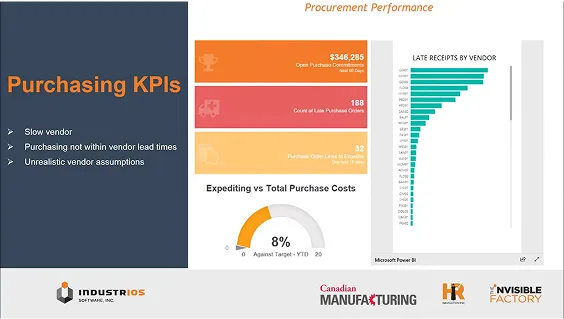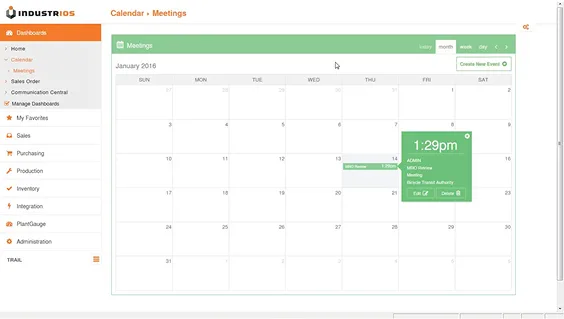Real Results from Advanced Planning & Scheduling (APS) in Manufacturing
How manufacturers are achieving dramatic operational improvements through strategic implementation of Advanced Planning & Scheduling systems

In modern manufacturing, the difference between thriving and merely surviving often comes down to one critical factor: how effectively a company can plan and schedule its production operations. While many manufacturers still rely on spreadsheets and manual processes, forward-thinking organizations are discovering that Advanced Planning & Scheduling (APS) modules deliver measurable results that transform their bottom line.
Results from Advanced Planning and Scheduling Summary:
APS implementations consistently deliver 15-30% production efficiency gains and up to 25% inventory reductions across diverse manufacturing environments
Advanced planning systems eliminate production bottlenecks by providing real-time visibility into capacity constraints and resource availability
Manufacturers achieve 95% schedule adherence rates and dramatic improvements in on-time delivery performance through data-driven production control.
Results from Advanced Planning: Transforming Manufacturing Performance
“We’re consistently seeing APS implementations deliver 15-30% production efficiency gains and up to 25% inventory reductions across diverse manufacturing environments,” explains Edward Szukalo, General Manager of INDUSTRIOS Software, Inc. “Advanced planning systems eliminate production bottlenecks by providing real-time visibility into capacity constraints and resource availability.”
According to Szukalo, manufacturers achieve 95% schedule adherence rates and dramatic improvements in on-time delivery performance through data-driven production control when properly implementing APS technology.
Bottleneck Elimination
Traditional manufacturing operations often suffer from what Szukalo calls “invisible constraints” – bottlenecks that aren’t apparent until production grinds to a halt. Advanced planning modules excel at identifying these constraints before they impact production, enabling manufacturers to proactively address capacity issues.
Production managers report that APS systems transform their ability to anticipate and prevent bottlenecks. Instead of discovering capacity constraints when orders are already late, manufacturers can visualize potential conflicts weeks in advance and take corrective action.
Resource Optimization
“We recently worked with a machinery manufacturer that reported a 22% improvement in overall equipment effectiveness (OEE) after implementing APS technology,” says Szukalo. “These results from advanced planning occurred because the system eliminated guesswork from production scheduling by automatically considering setup times, changeover requirements, and operator availability.”
The impact extends beyond individual machines to entire production networks. APS systems excel at managing complex order networks where multiple components must converge at precise times. By coordinating these interdependencies, manufacturers avoid the costly delays that occur when one component arrives late and disrupts an entire assembly line.
Schedule Adherence Improvements
“Schedule adherence typically shows the most dramatic results from advanced planning implementations,” explains Szukalo. “Many of our clients achieve 95% or higher adherence rates within months of APS deployment.” This reliability cascades through the entire organization, enabling more accurate customer commitments, reduced safety stock requirements, and improved cash flow management.
“The beauty of modern APS systems lies in their ability to transform complex manufacturing data into actionable intelligence,” explains Szukalo. “We’re seeing manufacturers move from reactive firefighting to proactive production control, and the results are remarkable.”
How APS Modules Transform Production Control
Modern APS modules transform vast amounts of manufacturing data into clear, actionable insights. Production managers no longer need to rely on intuition or incomplete information when making critical scheduling decisions. Instead, they access comprehensive dashboards that present real-time production status, constraint analysis, and predictive scheduling recommendations.
The transformation from traditional planning methods to advanced APS systems delivers measurable operational improvements across key performance areas: Explore the full breakdown of how advanced planning and scheduling systems drive these improvements here: https://poe.com/preview/c1ui1Q8iiDvfSugpRm12
This data-driven approach proves particularly valuable in make-to-order environments where each job presents unique requirements. APS systems analyze historical performance data, current capacity, and order specifications to generate realistic delivery commitments. Sales teams gain confidence in their promises to customers, knowing that production schedules are based on accurate capacity analysis rather than optimistic estimates.
Coordinating Complex Order Networks
The coordination of complex order networks represents one of the most challenging aspects of modern manufacturing. APS technology excels in this area by providing visibility into the interdependencies between different production orders, components, and assembly operations.
“What we’re witnessing is a fundamental shift in how manufacturers approach production control,” notes Szukalo. “Companies that embrace APS technology aren’t just improving their current operations – they’re building the foundation for sustainable growth and competitive advantage.”
This capability allows production planners to make informed decisions about schedule adjustments while minimizing disruption to other orders.
Measuring and Sustaining APS Success
The most successful APS implementations focus on measurable outcomes through key metrics:
- Schedule adherence rates – Monitor production reliability and delivery performance
- Inventory turns – Track material management efficiency and cash flow optimization
- Customer satisfaction scores – Measure impact of improved delivery reliability.
[Request a Demo]












